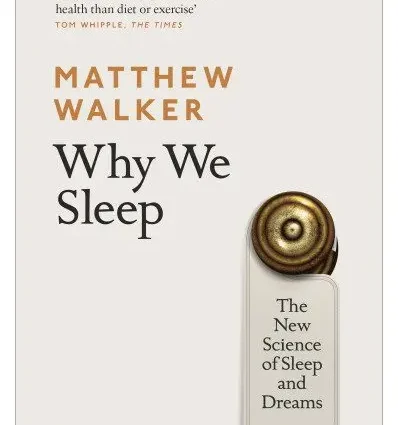Contents
Physiological need and metaphysical abyss – this is how the philosopher Jean-Luc Nancy sees the dream. He is wide-eyed exploring what happens to us in a dream. After all, sleep is terra incognita, although each of us is in those parts every night.
Do we exist for ourselves when we sleep?
When I sleep, my sleeping “I” can no longer say that I am sleeping, just as it could not, for example, say that I have died … So one can imagine that this “I” is someone else sleeping instead of me. But you can go even further: this other who sleeps in my place fits perfectly into this “my place”. Moreover, he takes this place entirely!
Sleeping is not a part of me and not some function of mine. Rather, I would say that we are talking about a “whole” other, who I become, barely falling asleep, I separate myself from all my properties, duties, occupations. Except for such an activity as sleep, the point of which is precisely to suspend all my other functions.
In a dream, our “I” comes into an almost vegetative state: it is attached to the place where it is, one might say, rooted in it, the only thing that happens to it is breathing and blood circulation. Only these processes remain active during sleep: they occur at a slower pace, but deeper and more complete.
To fall asleep, the body needs to lull itself to sleep according to the rhythm of its heartbeat and breathing. Whatever our age, each of us does not fall asleep without lulling ourselves in our own way. One cannot fall asleep without gradually entering into resonance with a barely audible melody, which, like a wave rolling on sand, moves a little further each time …
Co-sleeping gives us the opportunity to penetrate into the very depths of the other. Look at the lovers sleeping in a happy and weary sleep. They simultaneously sink into sleep, prolonging their love shudders, hanging in them for a long time, as if they are pulling one note, which lasts until their common chord fades.
Their intertwined bodies unravel imperceptibly in their sleep, even if they sometimes sleep embracing until waking up. At this moment, they joyfully emerge into reality together again, as if they were immersed in the depths of the waters created by themselves.
Why is it so hard to endure insomnia?
Sleep deprivation is a torture that we are very good at inflicting on ourselves. Falling asleep is possible only if we have tamed our fears. We all know from childhood that the night is a wild land, where the thoughts that we managed to cope with during the day can turn into worries, so they need to be dispelled in order to find peace.
But besides our personal experiences, there is also a world in which we live and which does not know peace, does not stop for a minute, does not distinguish between sleep and reality. Our world either sleeps standing, or wakes up in a dream. We have lost our natural rhythm, like migratory birds that mistake night for day because of the big cities glowing in the sky.
Besides, we are not equal in the face of sleep. The hardest thing is probably not being able to sleep peacefully. In modern cities, there are many exhausted people who are always on guard. They do not sleep, but seem to fall dead, oppressed by day and depressed by night; they do not so much fall into sleep as fall into it …
Sleep and dreams
Dreams are like Ali Baba’s cave: since ancient times, people have been looking for the key to dreams, and since Freud, the key is in the dreams themselves. But I do not deal with dreams – they, being told, thereby pass into the category of what we are aware of.
Sleep, on the other hand, inspires us much less. As far as I know, there are no philosophical texts directly devoted to the phenomenon of sleep. Why? Probably because sleep is not primarily a philosophical sphere.
Sleep does not like light, it is a black hole that reveals itself only as disappearance, evasion, deepening. This is a territory beyond consciousness and thinking, where history with a capital letter, and just history, is put out the door. That’s enough to keep the advocates of “consciousness growth” away!
In this adventure that repeats itself every night, it is the loss of meaning that fascinates me, whether that is the meaning of History or the more mundane meaning of our own existence. When we say “I’m falling off my feet, I want to sleep so much,” where does this “I” actually fall?
When I fall into a dream, everything becomes vague, the ship weighs anchor and begins to drift. If I fall from the desire to sleep, then sleep has already begun to take possession of me and conquer me even before I really fall asleep. Sleep captures, fills, conquers us. And at the same time, plunging into sleep, where are we plunging – isn’t it in ourselves?
Sleep as metaphysics
Existential anxiety, that eternally tormenting question “who are we?” recedes as soon as we fall asleep. Sleep, a natural necessity and everyday situation that seems to be a parenthesis in our lives, dissolves a person in non-existence, or at least gives us a break from the fatigue of being ourselves. This, in fact, is the role of sleep.
What is sleep? It means erasing the questions “Am I really me?”, “Am I who I should be?”. At the other end of the dream is awakening: every morning the “I” must create itself anew. Not for the sake of something grandiose, but simply so that in the coming day there would be the beginnings of meaning – each time new.
Jean-Luc Nancy, philosopher, author of The Abyss of Sleep










